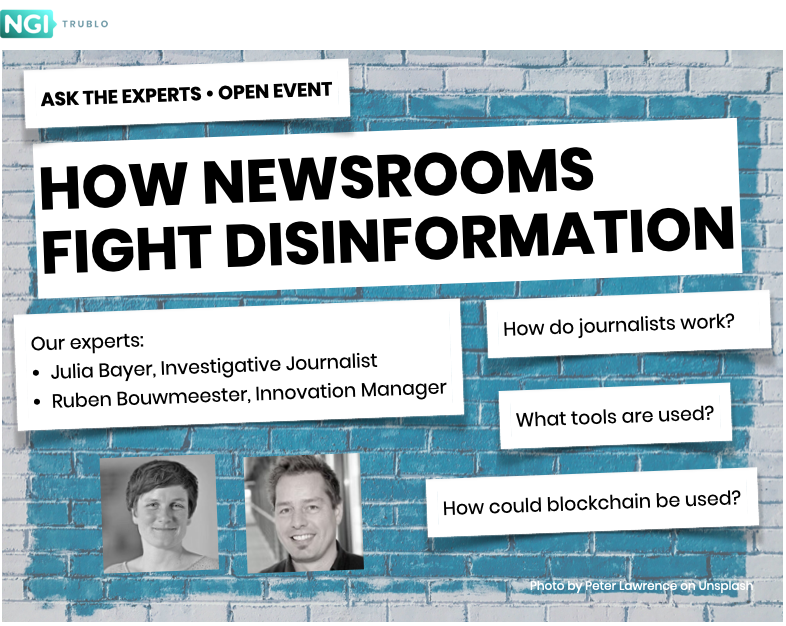
A scientific way to better understand conspiracy theories
This links to an interesting scientific article published in February 2022. The report provides a relevant and updated view on how to handle “conspiracy theories”.
“Findings show that the majority of studies lack a definition of conspiracy theories and fail to conceptually delineate conspiracy theories from other forms of deceptive content. We also found that while the field employs a variety of methodological approaches, most studies have focused on individual, “mainstream” social media platforms, “Western” countries, English-language communication, and single conspiracy theories.”
Conspiracy theories are “alternative explanations of historical or ongoing events claiming that people or groups with sinister intentions are engaged in conspirational plotting have permeated online communication, news media coverage, popular culture and political rhetoric”.
If you have encountered a believer of such theories you will know: A debate with people who believe such theories can be quite stressful – usually it is not a discussion but quickly turns into a war over who is right.
The scientific article explores the evolution of such topics in an online environment and provides an overview of the research on this topic, including recommendations towards future scientific analysis.
“For a long time, conspiracy theories were perceived as harmless phenomena that were “silly and without merit” (Keeley, 1999: 109) or only existed as “‘soft’ beliefs” (Sunstein and Vermeule, 2009: 220) that people quietly kept but rarely acted upon.”
But, especially during the COVID-19 years the world witnessed a rising influence of such views and a high visibility of groups supporting such theories on almost all social networks.
Profound changes in the media and platform ecosystem and particularly the advent of social media platforms, which have enabled faster communication about and dissemination of conspiratorial narratives, have changed this, however. Thus, the last few decades have seen a plethora of “high-profile conspiracy theorizing” (Uscinski, 2018: 233) around topics such as vaccination, climate change, the 9/11 attacks (Mahl et al., 2021), or, most recently, the COVID-19 pandemic (Zeng and Schäfer, 2021).
Source:
Conspiracy Theories in online environments: An interdisciplinary literature review and Agenda for future research
By
Photo by Markus Winkler on Unsplash

Five Minute Blockchain Newsletter Nr. 55
Five Minute Blockchain – No. 55
16.05.2023
Estimated reading time: 7 min 55 seconds
QUOTE OF THE WEEK:
TRUST
Transparency and safety: European Parliament preparing a set of rules for AI and surveillance technology
In the past, rulings and regulations for new technologies lagged, sometimes for years. But with Artificial Intelligence (AI), things seem to move faster. Last week two committees of the European Parliament adopted a draft of far-ranging rules for the use of AI and surveillance technology.
Once approved, these could become the “world’s first rules on Artificial Intelligence”. The rules include the right to complain about AI systems and provide a handle for system changes. Another element is the proposed ban on “biometric surveillance, emotion recognition, predictive policing AI systems.”
In a press release, European Parliament said the goal is to ensure a human-centric and ethical development of AI in Europe.
“MEPs aim to ensure that AI systems are overseen by people, are safe, transparent, traceable, non-discriminatory, and environmentally friendly.”
“AI systems with an unacceptable level of risk to people’s safety would be strictly prohibited, including systems that deploy subliminal or purposefully manipulative techniques, exploit people’s vulnerabilities or are used for social scoring (classifying people based on their social behaviour, socio-economic status, personal characteristics).”
Below is a list of technologies and practices which would be banned under the future EU rules:
- “Real-time” remote biometric identification systems in publicly accessible spaces;
- “Post” remote biometric identification systems, with the only exception of law enforcement for the prosecution of serious crimes and only after judicial authorization;
- Biometric categorisation systems using sensitive characteristics (e.g. gender, race, ethnicity, citizenship status, religion, political orientation);
- Predictive policing systems (based on profiling, location or past criminal behaviour);
- Emotion recognition systems in law enforcement, border management, workplace, and educational institutions; and
- Indiscriminate scraping of biometric data from social media or CCTV footage to create facial recognition databases (violating human rights and right to privacy).
European Parliament Press Release
Google deploys pass keys
Google is extending the roll-out of pass keys to all Google accounts. This is part of a broader move away from hackable/often insecure “12345” passwords, with similar pushes towards more security expected from Apple, Microsoft and others.
From a Google Press Release:
“Passkeys are a new way to sign in to apps and websites. They’re both easier to use and more secure than passwords, so users no longer need to rely on the names of pets, birthdays or the infamous “password123.” Instead, passkeys let users sign in to apps and sites the same way they unlock their devices: with a fingerprint, a face scan or a screen lock PIN. And, unlike passwords, passkeys are resistant to online attacks like phishing, making them more secure than things like SMS one-time codes.”
Conference: Future of AI
On 29 June 2023, Horizon Europe research projects AI4media, AI4Trust, TITAN and vera.ai – in cooperation with the European Commission – host a one-day event focusing on various facets of Artificial Intelligence and the disinformation landscape. Full title: Meet the Future of AI: Countering Sophisticated & Advanced Disinformation.

CONTENT
Media company Vice files for bankruptcy
The media start-up was once valued at $5,7bn but had recently seen less revenue from digital advertising. The company websites will keep operating until a buyer is found.
“Investments from media titans like Disney and shrewd financial investors like TPG, which spent hundreds of millions of dollars, will be rendered worthless by the bankruptcy, cementing Vice’s status among the most notable bad bets in the media industry.”
Employees at Microsoft like the new training videos as much as a Netflix series
Training videos are usually dull – you must watch them, but it is not easy. Someone or a team at Microsoft has found a better way: Training videos that are so interesting and well-done that people like to see them.
The series is called “Trust Code” and is now in its 7th season. The main character is played by an aspiring actor named Devin Badoo- a star, at least among many of the 220.000 Microsoft workers:
“For employees at most companies, sitting through training videos every year is about as welcome as a toothache. “Trust Code,” with its recurring characters and end-of-season cliffhangers, is redefining the genre. Since launching in 2017, it has inspired watch parties, viral memes and T-shirts with Mr. Badoo’s image.”
AI Update
Last week Google had its big annual developer conference and launched several significant updates for AI technology in the search platform.
Here are three links to get you a quick update here:
Nearly half of YouTube views in the US are on TVs
YouTube is growing. There is a new generation of content creators, resulting in a constant flow of exciting video content for almost any interest and niche. The audience has noticed YouTube is on its way as an even bigger competitor to traditional TV.
“Internal data indicate that close to 45% of overall YouTube viewing in the U.S. today is happening on TV screens”.
BLOCKCHAIN
Blockchain Large Language Models
How to use blockchain as a tool for intrusion detection:
“This paper presents a dynamic, real-time approach to detecting anomalous blockchain transactions. The proposed tool, BlockGPT, generates tracing representations of blockchain activity and trains from scratch a large language model to act as a real-time Intrusion Detection System.”
The Crypto Trash Moat
A big question: To what extent are crypto platforms used for crime?
There can only be estimates: “Any conversation about crypto and crime needs to disclose that, according to the folks with the data, less than 1% of total crypto transactions can be tied to illicit use – at least that’s what Chainalysis reports.”
What is going on a lot in crypto and elsewhere are “confidence games”, where criminals lure people into paying for something (often as an investment) and then trick them out of their money.
In 2022 the US Department of Justice named cybersecurity expert Eun Young Choi as the first director of the “National Cryptocurrency Enforcement Team (NCET)”. The department seems to focus on “smaller issues” like social media scams, fraudsters and darknet misuse”.
Instead of major headline-drawing scandals like FTX and 3AC, Choi’s department seems primarily focused on relatively smaller issues like social media scammers, darknet misuse and online fraudsters – an activity that’s rarely discussed openly but which exists as a sort of background hum for anyone spending time on Crypto Twitter and Discord. (Paul Dylan-Ennis, a frequent contributor to CoinDesk, calls this crypto’s “trash moat …)”
The amounts of money the NCET and other US departments are securing are substantial:
While scams like these often only damage a single victim at a time, it can still be big money. NCET, along with other agencies, booked upwards of $112,000,000 from busting six such U.S.-based scams. The Federal Bureau of Investigation (FBI) estimates $3.31 billion was stolen from people in 2022 through investment fraud, with crypto-related scams accounting for more than a third (~$2.57 billion) of that figure. Worse than just money lost, the proliferation of confidence games – which require bad actors to cultivate long-term relationships and build trust with their marks – has tainted crypto’s reputation.
Thank you for reading. If you have questions or suggestions, please get in touch with us via info@trublo.eu.

Five Minute Blockchain Newsletter No. 42
Welcome to a new edition of the TruBlo newsletter. We aim to collect and link to the most relevant content in the field of blockchain, trust and content from the past week, with optimism for blockchain technology, but not as cheerleaders. We are an EU-funded research project supporting 45 early-stage teams working on “trusted content for future blockchains”. Please forward this newsletter to colleagues and friends if you think they would be interested in this.
Estimated reading time: 9 minutes 54 seconds (apologies, we are a bit longer this week).
Updates this week
QUOTE OF THE WEEK
“I can’t think of a field in tech that has had as much polarisation and as much useless noise as crypto. Behind all the noise, a lot of very clever people are quietly building highly complex and technical infrastructure, scaffolding and plumbing that might mean you could build billion-scale consumer services on this stuff in, say, five years.”
Source: Benedict Evans, Newsletter Nr. 457 (20.09.2022)
PROJECT
Projekt of the week: Enarxis – better management of EV loading stations
Enarxis project will use blockchain technology for reputation management for users of Electric vehicle (EV) loading stations, specifically in the hospitality sector.
Why in the hotel sector? Because EV loading stations have become as essential for hotel guests as WiFi was a few years ago. There are two problems: What if people reserve a station but then do not show up – but because of the reservation, the station is still blocked for use by others? Similarly, what if people load their batteries but then do not leave? Both issues will be managed with an app developed by the team behind Enarxis. The team was recently selected for an accelerator program by Visa and had earlier been funded by TruBlo.
Project profile & team members: Enarxis (EV Loader)
TRUST
How Russian Disinformation targeted a US movement
A report on how state-sponsored trolls from Russia targeted a movement (the Women’s March of 2017) and its leaders in the US. The goal was to weaken the movement by attacking the leaders and sowing doubt:
“They posted as Black women critical of white feminism, conservative women who felt excluded, and men who mocked participants as hairy-legged whiners. But one message performed better with audiences than any other. It singled out an element of the Women’s March that might, at first, have seemed like a detail: Among its four co-chairs was Ms. Sarsour, a Palestinian American activist whose hijab marked her as an observant Muslim.”
A second quote helps to understand how the tactics work:
“Ladislav Bittman, who worked for the secret police in Czechoslovakia before defecting to the United States, compared Soviet disinformation programs to an evil doctor who expertly diagnoses the patient’s vulnerabilities and exploits them, “prolongs his illness and speeds him to an early grave instead of curing him.”
Passwords: Why four random words are better than a complex phrase
Julia Angwin from The Markup shares a reminder on how to construct hard-to-crack passwords. The critical knowledge is that four random words (for example” “Sunshine Expected Today Brooklyn”) are hard to crack (because of the number of possible combinations) and easy to remember. There is no need for a complex, hard-to-remember phrase. For illustration, here is a link to an XKCD strip about this particular topic.
In her newsletter, she goes a step further and talks to Jeremi Gosny, an expert in the space of password security. They discuss how the need for safe passwords has changed. The critical advice: Make sure that you have a different password for all accounts, not the same across all your logins. The interview is interesting, and there are several relevant and recent observations in the space of individual password security.
Quote from the interview with Jeremi Gosny: “Where we find the most success as password crackers is targeting passwords that are generated by humans, because humans across the globe still tend to think alike. Despite our language and cultural differences, our brains are only capable of coming up with a finite space of patterns.”
CONTENT
The New York Times reports strong subscriber growth for 2. Quarter 2022
The New York Times is one of a few newspaper/news organisations that are successfully moving from the old print/advertising world to digital subscriptions. Developments are tracked worldwide in the hope of learning about potential patterns that could be applied to ailing news organisations elsewhere. The most recent update from the company is the second-quarter results for 2022. In total, 230.000 new subscriptions in one quarter mean that the goal of 10 million total subscribers could be achieved much earlier than planned.
The New York Times (Press Release)
Police at the door
In Germany, posting hate content in Germany can have direct consequences as a result of new laws.
“German authorities have brought charges for insults, threats and harassment. The police have raided homes, confiscated electronics and brought people in for questioning. Judges have enforced fines worth thousands of dollars each and, in some cases, sent offenders to jail. The threat of prosecution, they believe, will not eradicate hate online, but push some of the worst behavior back into the shadows.In doing so, they have flipped inside out what, to American ears, it means to protect free speech. The authorities in Germany argue that they are encouraging and defending free speech by providing a space where people can share opinions without fear of being attacked or abused. ‘There has to be a line you cannot cross,” said Svenja Meininghaus, a state prosecutor who attended the raid of the father’s house. “There has to be consequences.'”
Five AR/VR trends: Free analysis of current market development
“Immersive workouts. Workplace training simulations. MeditaThere’sps in virtual reality” – these are just three scenarios which could soon define a growing market for AR (Augmented Reality) or VR (Virtual Reality). Market research CB Insights has a free 26-page study about recent trends for AR/VR, and the study is available after free registration. Salvador’sactive company so far in this field has been Meta, but now Apple seems to get ready to enter this particular market with new hardware offerings.
Instagram allows longer stories
Instagram will allow longer stories. Stories shorter than 60 seconds will no longer be broken into small segments.
“Now, when you post a Story that’s under 60 seconds in length, it won’t be broken up into segments. The company began testing the change with select users late last year and has now rolled it out to all users worldwide…The new change is a welcome addition to the app, likely for both users and viewers. Users will now be able to post uninterrupted Stories that won’t be broken up, and on the other hand, viewers will no longer have to continually tap to get through a long video that they may not actually want to see. But, the change could also be a turnoff for people who liked the simplicity of short, bite-sized Stories.”
Podcast episodes are getting shorter
Based on an analysis of 2,5 million podcasts episodes with at least 10.000 listeners, Rephonic found that:
“Over the past nine years, podcast episodes that are at least 60 minutes long have slowly but surely become less common. They made up over 20% of all podcast content in 2013, decreasing to under 17% in 2021. Why? It could be the rise of short and frequent daily news podcasts. Or perhaps as podcasting becomes increasingly accessible, it attracts more indie podcasters with less budget to spend on producing long episodes.”
Other findings:
- The average top-performing podcast releases a 37-minute episode every 5 days
- The top History podcasts have the longest delay between new episodes
- Fiction podcasts should record longer episodes to attract a large audience
BLOCKCHAIN
Digital Euro legislation planned for 2023
“At a conference hosted today by the Banque de France, EU Commissioner Mairead McGuinness said that the Commission plans to propose legislation for a ‘possible’ digital euro in 2023 to enable parliament and the European Council to debate it. The digital euro work is currently in the prototyping phase, and Banque de France Governor François Villeroy de Galhau confirmed that a decision on whether to proceed would be made at the end of 2023, with a potential launch in 2026 or 2027.”
Ethereum Merge reduced global energy consumption by 0,2%
“The Ethereum merge this week slashed global energy consumption by 0.2%, Vitalik Buterin wrote in a tweet Thursday, citing a crypto researcher. The long-awaited event successfully transformed the blockchain from a proof-of-work consensus mechanism to proof-of-stake. Proponents have touted the transition for making Ethereum an almost-net-zero technology. The switch also makes gas fees, or transaction costs, lower and means the network will be able to process transactions faster.”
Argentine airline to adopt NFT technology for tickets
Airbondi, a low-fare airline from Argentina, plans to issue flight tickets as non-fungible tokens (NFTs). This means that passengers can do more with them. For example, they can sell or transfer the tickets to other persons three days before departure. The underlying technology was developed by Travel X, and the company’s website is worth a visit. The company aims to reimagine travel using blockchain tech.
Nomura and 17here’s banks have invested in FNALTY, which uses blockchain for central bank settlements
“Fnality, formerly known as the Utility Settlement Coin, tokenizes money deposited at a central bank to enable the settlement of DLT-based transactions with on-chain digital currency. It is expected to launch its first currency, the British Pound, next month as it has been formally recognized as a payments system by HM Treasury. Other planned currencies are euros, U.S. dollars, Japanese Yen and Canadian dollars.”
Bitcoin in El Salvador, one year later
Quote via “Attack of the 50 Foot Blockchain”:
- There’s almost no use of bitcoin as a currency. The official Chivo Wallet is hardly used, and they never did get it working correctly. Businesses have taken down their “we accept bitcoin” signs.
- There’s almost no use of bitcoin for remittances.
- Hundreds of millions of dollars in public funds have gone up in smoke — which is as if the US spent hundreds of billions — with nothing to show for it.
- Crypto crashed. As well as screwing over local bitcoin holders, this halved the face value of the government bitcoin reserve.
- El Salvador can’t borrow internationally. The IMF won’t talk to them while bitcoin is in place. The price of Salvadoran sovereign debt has fallen through the floor, as has El Salvador’s credit rating.
- The Bitcoin Volcano Bonds supposedly had $1.5 billion of buyer interest lined up — then Russia invaded Ukraine, and those buyers vanished.
- The ground has not been broken for Bitcoin City. I’m pretty sure it never will.
David Gerrard’s “Attack of the 50 Foot Blockchain”
Estonia approves first crypto bank after new legislation
“Striga, a bitcoin and cryptocurrency bank, became the first virtual asset service provider (VASP) to gain regulatory approval in Estonia following the country’s revamping of its digital asset legal framework, per an announcement from the Financial Intelligence Unit.”
Striga is the new name used by Lastbit, a US start-up team. The project had already introduced Mastercards in connection with crypto accounts. The team has been part of YCombinator, a start-up accelerator.
Financial Intelligence Unit (Press Release)
Is crypto a house of cards?
The Washington Post has a special about the story of crypto so far, chapter by chapter.
“Crypto is among the most urgent of current tech topics, driven by billions of cryptocurrency trades weekly — bitcoin and so many others — and a cultural stigma perhaps unseen in finance since the days of the Wall Street wolves of the 1980s. Almost since its creation, crypto has been characterized by sudden wealth creation, surprise hacks, big scams, bold promises and shattered dreams.”
The Washington Post (free content)
OTHER STORIES & SHORT LINKS
- Interpol has issued a red notice for Do Kwon, founder of failed Terraform TechCrunch
- Looking at 320 pitch decks, here’s what science tells us works best TechCrunch
- UN countries are preparing to pick a new head of the International Telecommunications Union Wired UK
- “As If Nothing Happened”: I Used Artificial Intelligence To See How Some Celebrities Would Look Today If They Were Alive Bored Panda
- Australian pilot CBDC test for eAUD to commence mid-2023 Cointelegraph
- Christie’s moves on-chain with NFT auction platform on Ethereum Cointelegraph
- How Web3 property rights can transform the digital economy Forkast
Thank You for reading. If you have questions or suggestions, please get in touch with us via info@trublo.eu

Five Minute Blockchain Newsletter No. 40
Five Minute Blockchain
Welcome to a new edition of the TruBlo newsletter. We are funding 45 early-stage blockchain ideas to explore new options for “trusted content on future blockchains”. A list of all TruBlo projects is here: https://www.trublo.eu/projects/
Our main question for selecting news and links: How is the field of blockchain, content and trust evolving?
Estimated reading time: 5 min 12 secs
Updates this week:
TRUST
FTC sues US data broker Kochava
The Federal Trade Commission (FTC) has filed a suit against Kochava, a US-based data broker.
“Kochava’s data can reveal people’s visits to reproductive health clinics, places of worship, homeless and domestic violence shelters, and addiction recovery facilities. The FTC alleges that by selling data tracking people, Kochava is enabling others to identify individuals and exposing them to threats of stigma, stalking, discrimination, job loss, and even physical violence. The FTC’s lawsuit seeks to halt Kochava’s sale of sensitive geolocation data and require the company to delete the sensitive geolocation information it has collected.”
Two-thirds of UK youth are not interested in crypto
A survey conducted by youth marketing agency Seed in May 2022 showed low interest in cryptocurrency among young people in Britain.
“Responses revealed that 66% of so-called ‘zoomers’ aged 18-24 are not interested in cryptocurrency, with 10% willing to try it but won’t prefer it over other investments. It canvassed 2,000 people during May, which was the depths of the crypto crash. Women are even less interested in crypto, with three-quarters giving it a thumbs down. In contrast, half of men are willing to give it a try.The situation for NFTs was even worse, with 70% believing non-fungible tokens (NFTs) are scams.”
Facebooks pervasive pixel
A study using technology from Mozilla reveals the extent of data collection around the world.
People buying guns with cryptocurrency leave a digital trail
Gun owners in the USA want no or minimal data registration about purchases and ownership. But buying weapons with crypto could leave an unintentional digital trail.
CONTENT
Sources: Netflix plans to launch ad tier in November, to be ahead of Disney+
In July, the company announced to plan for the introduction in early 2023. Now it looks like the launch will be done earlier for markets in the US, Canada, UK, France and Germany.
Google blocks TruthSocial app because of violent content
TruthSocial is a social media platform initiated by former US president Donald Trump after being banned from Twitter. Now it seems Google will not allow the app to be downloaded via the Google Play Store.
French government uses AI to detect undeclared swimming pools
In France, homeowners must declare a swimming pool for accurate property tax. Authorities are now using machine learning software to analyse aerial photos.
“The software, developed in partnership with the consulting firm Capgemini and the US digital giant Google, was tested in nine regions — Alpes-Maritimes, Var, Bouches-du-Rhône, Ardèche, Rhône, Haute-Savoie, Morbihan, Maine-et-Loire and Vendée — and revealed more than 20,000 undeclared swimming pools, according to a report by the directorate. “
Twitter tests an edit button for Tweets
A tweet can be edited for up to 30 minutes, and the edit history will be shown to users. The feature has been requested for a long time, though critics feat that the edit option might open the door to misuse.
Little kids yelling “poop” at Alexa are driving up profits for some songs
“Pecunia non olet” is a Latin proverb that means “Money does not smell”. Now, some musicians report that songs with the word “poop” are getting many plays. The assumption is that this happens because little kids yelling “poop” activate Alexa.
BLOCKCHAIN
Helium developers propose switching to Solana
According to a blog post by the Helium Foundation, the platform wants to free up resources needed to develop and maintain its own blockchain and instead plans to switch to Solana.
“Developers behind the Helium network – a grid of medium-range wireless hotspots pitched as an alternative to hard-wired internet service – are proposing to migrate away from the project’s own blockchain onto Solana, in pursuit of faster transaction speeds, higher uptimes and more interoperability with other blockchains as key reasons. The Helium Foundation wrote in a Medium post this week that the new proposal from the Helium core developer team would improve the operational efficiency “significantly.” The proposal to move toward Solana and away from Helium’s own blockchain, officially known as HIP 70, “addresses network speed, reliability and scalability”.
Misplaced decimal allowed traders in Georgia to cash out at 100x the regular price
Coinbase tries to get its money back after discovering that in late August, Georgia traders could cash out crypto at 100 times the intended market rate. The Georgian Lari (GEL) exchange rate was 290, not 2,90. As a result, an estimated 900 traders could sell their holdings at a considerable profit. Coinbase is now seeking payback; accounts have been locked in some cases. The misplaced decimal point was not detected for seven hours.
Market analysis: The state of crypto banks in 2022
Users: From October 2021 to May 2022, Crypto.com saw its user base grow from 10M to 50M, an increase of 400%. Similarly, the number of Nexo users doubled from over 2M to over 4M from September 2021 to May 2022. Crypto lending has surged over the last two years and publicizes a vision of financial services where lenders and borrowers avoid the traditional financial firms that position themselves as the gatekeepers for loans or other products.
Company size: While some crypto banks are facing hiring headwinds, others are unperturbed amid market volatility. In June 2022, BlockFi announced a 20% layoff — the company headcount dropped from about 850 in January to about 680 by the end of July. Meanwhile, Nexo’s LinkedIn headcount has jumped nearly 60% since January 2022.
Short links
- Google and YouTube outline plans for content moderation in US midterm elections TechCrunch
- How to add DuckDuck Go Privacy Essentials to your browser ZD Net
- Web3 Domain Name Service Could Lose Its Web Address Because Programmer Who Can Renew It Sits in Jail Coindesk
- Snap appears to have axed its Web3 team as part of the social media company’s decision to restructure and cut its headcount by about 20%. Blockworks
- 62% of wallets did not sell Bitcoin for a year amid a bear market Cointelegraph
Would you happen to have any feedback or suggestions? Contact us via info@trublo.eu
Photo by Bernard Hermant on Unsplash

How newsrooms fight disinformation – a Q&A with two experts
How newsrooms fight disinformation
Q&A with Julia Bayer and Ruben Bouwmeester, DW Research and Cooperation projects
Tuesday, December 14 • 12:00-13:00 CET • via Zoom
How do journalists work against mis- and disinformation? What are the workflows for the verification of content? What are the main challenges for newsrooms? And: What do the experts expect from future blockchain solutions? To get answers and insights please join us for an open webinar on December 14, 2021, from 12:00 – 13:00.
Join us as a guest
The event is organised for the now 25 funded project teams of TruBlo. But participation is open for guests from the NGI community, EU researchers, startups and developers. If you want to join as a guest please contact us at support@trublo.eu and we sent you the log-in credentials for the Zoom conference.
The experts will give a very brief overview, the session will then allow for Q&A by the participants.
What we discuss:
- How do journalists cope with disinformation?
- What are the workflows?
- Is there a way to overcome the current crisis of trust?
- What tools are available and working?
- What are current views on blockchain technology used for trustable content?
As part of the talk, the experts will talk about tools created to fight disinformation and to help with verification. Examples are the InVid verification plug-in, work done in the EU research project Digger (Deepfake detection) and Truly Media. The latter is a software platform for collaborative verification. Truly Media is used by a number of organisations, e.g. Amnesty International, Reuters, ZDF and the European Parliament.
Link: https://www.truly.media
Our experts:
 Julia Bayer is an investigative journalist who dives deep online using OSINT. She has gained first-hand experience from work in the social media team of Deutsche Welle. In addition, she works as an innovation manager of the Research- and Cooperation team of Deutsche Welle. Julia is involved in a number of verification projects, such as the implementation of Truly Media and InVid. She also trains journalists in OSINT techniques and digital verification. Julia has worked with journalists in multiple international locations and has worked with newsrooms, NGOs and DW academy. Julia is the founder of @quiztime on Twitter, where a worldwide community of participants regularly has to solve verification and geolocation tasks.
Julia Bayer is an investigative journalist who dives deep online using OSINT. She has gained first-hand experience from work in the social media team of Deutsche Welle. In addition, she works as an innovation manager of the Research- and Cooperation team of Deutsche Welle. Julia is involved in a number of verification projects, such as the implementation of Truly Media and InVid. She also trains journalists in OSINT techniques and digital verification. Julia has worked with journalists in multiple international locations and has worked with newsrooms, NGOs and DW academy. Julia is the founder of @quiztime on Twitter, where a worldwide community of participants regularly has to solve verification and geolocation tasks.
Twitter: @bayer_julia
 Ruben Bouwmeester brings concept development skills and profound graphical expertise. In his role as an innovation manager, Ruben was a key contributor to several software solutions and platforms used for the detection of disinformation and deep fakes. Ruben has been a key architect and manager for Truly Media, a collaboration platform created by the DW ReCo team in collaboration with Athens Technology Center. He has a background in project management, concept development, and design, holding a B.A. from The Hague University. As a ReCo innovation manager, Ruben specialises in User Generated Content (UGC), verification, and HLT. He also trained journalists at DW Akademie.
Ruben Bouwmeester brings concept development skills and profound graphical expertise. In his role as an innovation manager, Ruben was a key contributor to several software solutions and platforms used for the detection of disinformation and deep fakes. Ruben has been a key architect and manager for Truly Media, a collaboration platform created by the DW ReCo team in collaboration with Athens Technology Center. He has a background in project management, concept development, and design, holding a B.A. from The Hague University. As a ReCo innovation manager, Ruben specialises in User Generated Content (UGC), verification, and HLT. He also trained journalists at DW Akademie.
Twitter: @rubybouw
